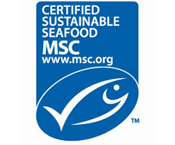
There is no longer a valid argument not to source sustainable tuna, it is a choice, and it is up to each one of us as market participants to accept the challenge… It hasn’t been easy for Pacifical to gather canneries, fishing companies, ministers, officials, retailers, food service companies, traders and even fast food restaurants all behind the same cause; enforcing and rewarding free school fishing for the skipjack tuna in the Western Central Pacific, we are thrilled to see it all finally coming together.
Within the next year, Pacifical will be supplying over 1000 FCL of MSC skipjack tuna to the world’s shelves and the volume continues to flow, the argument of there isn’t enough sustainable tuna available in the market to switch from FAD caught fish to sustainably caught tuna has become unacceptable.
Just to put into perspective, our PNA MSC certified fishery counts with 440 million kilo’s of eligible tonnage, enough to supply the entire American consumption.
This large volume can become available as per demand request, the platform is there to be used. Pacifical clients / partners can put their minds at rest knowing that consistent supply of their MSC skipjack tuna can be guaranteed. There isn’t any other MSC certified fishery at the moment capable of developing such large volumes.
Our goal is at the end, through economies of scale, to make PNA MSC certified tuna widely available and affordable to the average consumer without positioning sustainable tuna as a highly priced premium product only reachable to those with larger budgets, we want truly sustainable tuna for all.
The reason we offer sustainable MSC certified tuna can be summarized in 12 words: to ensure there will be plenty of tuna for generations to come. Pacifical was created in 2011 by the 8 PNA central western pacific island nations as a solution for many ecological and economical challenges in the region.
To there is one particular problem that is eminent to highlight: the by-catch of the baby bigeye caused by Fish Aggregating Devices… the evidence is public information; there is a notorious decrease in bigeye catches during the FAD ban period. The way we are going, we might not have bigeye tuna in the future. The question is, what is the industry doing to stop it?
Our Pacifical MSC certified fishing method sets nets only on free swimming schools of adult skipjack tuna, schools cannot be found on a FAD and as a matter of fact the school needs to be one (1) nautical mile away from any FAD. Any mixing intentional or unintentional with unsustainable FAD caught fish will immediately disqualify the eligible set. Independent onboard observers monitor and record all fishing operations according to the chain of custody standard. Fishing on free school minimizes by catch problems as much as possible and by targeting only schools we also ensure that most tunas in the catching set are predominately of mature size. Very few baby tunas are caught in schools, almost no juvenile big-eye and yellowfin.
There needs to be a change of mentality in the market, no more excuses, the options for sustainable, verifiable and traceable MSC certified tuna are widely available. Fishermen will start catching it in such way when t he markets demands it and is willing to accept that sustainable catch will cost a little more.
It is a choice, the world’s leading retailers, food service, restaurants, brand owners have a great responsibility that cannot be taken for granted, and that is to present the consumer with a verifiable sustainable and ethical product, consumers are after all depositing their trust in them to provide the best product.
So the initiative must come from the industry members towards the final consumer, not the other way around. There needs to be less justification, less excuses but more proactivity, the industry can no longer hide behind fake schemes of self-certification that leave space to fraud from the fishing ground and it is later transferred to the final consumer…it is important to enforce independent verification and surveillance, this is the only way we can move forward to provide the final consumer with a sustainable product, ensure our oceans are being managed in a responsible way and that our future generations will certainly be able to enjoy tuna just as we are able today.